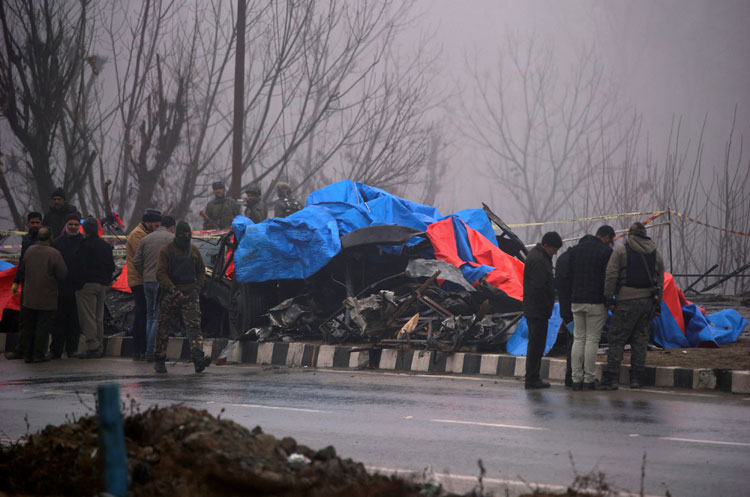
President Alvi has well insisted that the region needs peace, not war.
India and Pakistan have had strained relations for decades. Hostility and suspicion have scuttled every earlier attempt to usher in harmony and peace between the two sides. The cost has been too heavy for both the countries.
In this background, President Arif Alvi’s remark during his Pakistan Republic Day speech that his country wants peace with India and that both the countries should focus on health and education makes perfect sense.
President Alvi has well insisted that the region needs peace, not war, and that Pakistan wants to live peacefully with its neighbours and also that its war is against hunger, poverty and unemployment.
It also sounds encouraging that Indian Prime Minister Narendra Modi greeted his Pakistani counterpart Imran Khan on the occasion of Pakistan Day with both the countries emphasising on peace and prosperity for the region.
Khan has already welcomed the statement and called for a comprehensive dialogue on all issues, including the disputed Kashmir region.
The goodwill messages are especially soothing because they have come against the backdrop of recent escalation of tensions between the two countries following an attack on Indian security forces in India-held Kashmir’s Pulwama district. The events in the last week of February almost took the neighbours closer to war, which would have proved hugely futile. To believe that bloody wars could usher in peace is the most absurd course. The only certainty that wars bring with them is a trail of misery, death and destruction.
Pakistani High Commissioner to India Sohail Mahmood is absolutely correct when he says that additional steps are needed to consolidate the process of de-escalation, and to stabilise the ties against further shocks and reassure the citizens of the two countries that threat of war had receded.
Nonetheless, for that to happen, both nations should leave history behind and embrace a new, bold path towards reconciliation and prosperity.
It should not be forgotten that India and Pakistan share similar cultures, cuisines and languages that underline the historical ties between the two. Pakistani singers and entertainers have enjoyed widespread popularity in India, with many achieving overnight fame in the Indian film industry, Bollywood.
Likewise, Indian music and films are very popular in Pakistan. Also, cross border marriages are not uncommon. In April 2010, a high profile Pakistani cricketer, Shoaib Malik, married the Indian tennis star Sania Mirza.
It’s true that there have been numerous attempts to improve the relationship—the Shimla summit, Agra summit and the Lahore summit. Unfortunately, the outcomes have not been on expected lines.
It takes statesmanship and dialogue to break a deadlock. Confrontation should give way to cooperation. If several countries in Europe could do it, why not Asia?
India and Pakistan have lost too much because of what happened in the past. History reshaped geography, but it should not be allowed to alter goodwill and compassion, which are basic human traits. The past should not be a hurdle for the future, forcing the wonderful and creative young generation to continue to suffer, as golden opportunities on all fronts, including social and economic, may be lost.
The two glorious nations should push forward the peace process and intensify economic relations. Facilitating people-to-people contact will help reduce suspicions and intensify friendship. Sticking to status quo would be a self-defeating exercise.